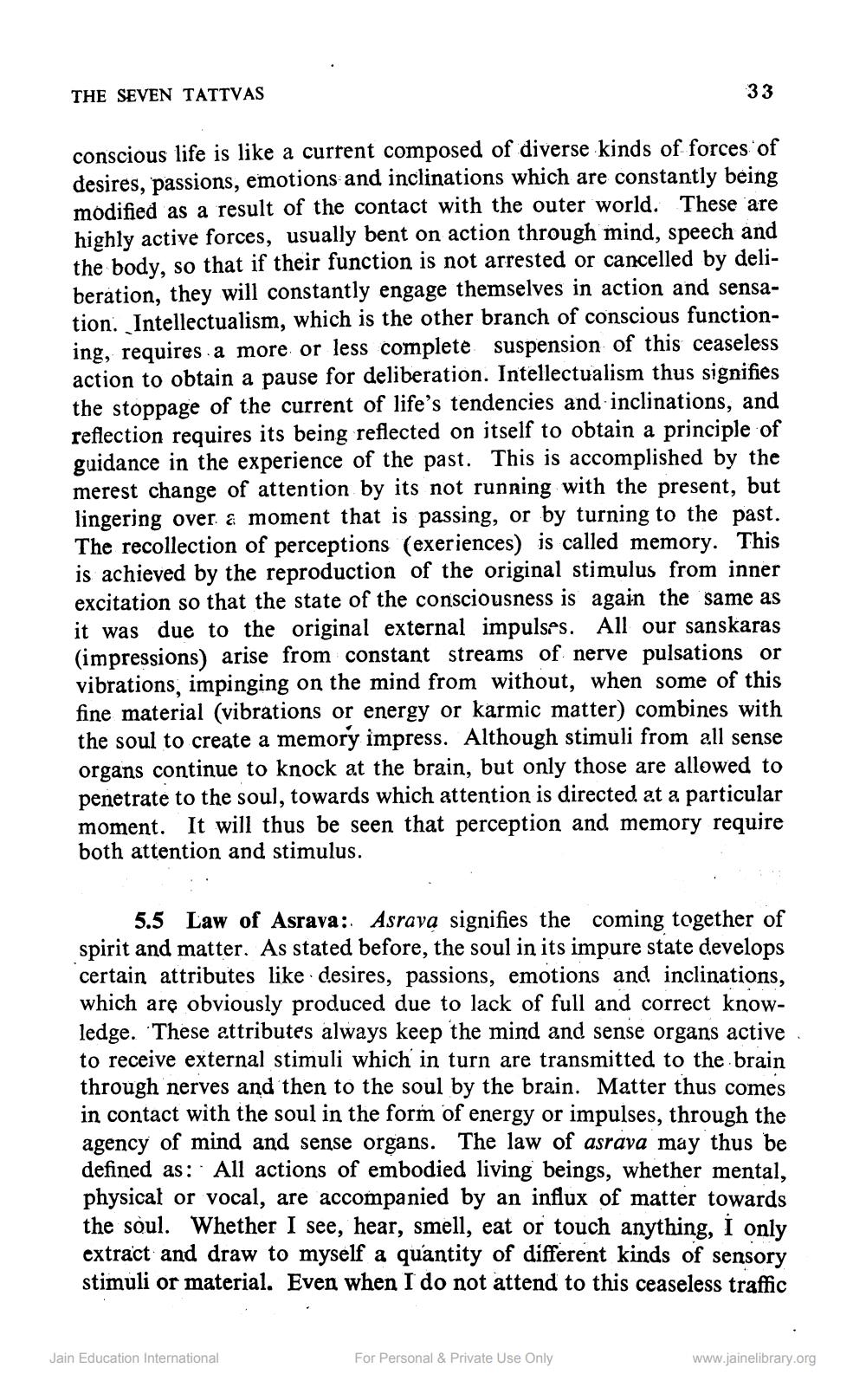________________
THE SEVEN TATTVAS
33
conscious life is like a current composed of diverse kinds of forces of desires, passions, emotions and inclinations which are constantly being modified as a result of the contact with the outer world. These are highly active forces, usually bent on action through mind, speech and the body, so that if their function is not arrested or cancelled by deliberation, they will constantly engage themselves in action and sensation. Intellectualism, which is the other branch of conscious functioning, requires a more or less complete suspension of this ceaseless action to obtain a pause for deliberation. Intellectualism thus signifies the stoppage of the current of life's tendencies and inclinations, and reflection requires its being reflected on itself to obtain a principle of guidance in the experience of the past. This is accomplished by the merest change of attention by its not running with the present, but lingering over a moment that is passing, or by turning to the past. The recollection of perceptions (exeriences) is called memory. This is achieved by the reproduction of the original stimulus from inner excitation so that the state of the consciousness is again the same as it was due to the original external impulses. All our sanskaras (impressions) arise from constant streams of nerve pulsations or vibrations, impinging on the mind from without, when some of this fine material (vibrations or energy or karmic matter) combines with the soul to create a memory impress. Although stimuli from all sense organs continue to knock at the brain, but only those are allowed to penetrate to the soul, towards which attention is directed at a particular moment. It will thus be seen that perception and memory require both attention and stimulus.
5.5 Law of Asrava: Asrava signifies the coming together of spirit and matter. As stated before, the soul in its impure state develops certain attributes like desires, passions, emotions and inclinations, which are obviously produced due to lack of full and correct knowledge. These attributes always keep the mind and sense organs active to receive external stimuli which in turn are transmitted to the brain through nerves and then to the soul by the brain. Matter thus comes in contact with the soul in the form of energy or impulses, through the agency of mind and sense organs. The law of asrava may thus be defined as: All actions of embodied living beings, whether mental, physical or vocal, are accompanied by an influx of matter towards the soul. Whether I see, hear, smell, eat or touch anything, I only extract and draw to myself a quantity of different kinds of sensory stimuli or material. Even when I do not attend to this ceaseless traffic
Jain Education International
For Personal & Private Use Only
www.jainelibrary.org




